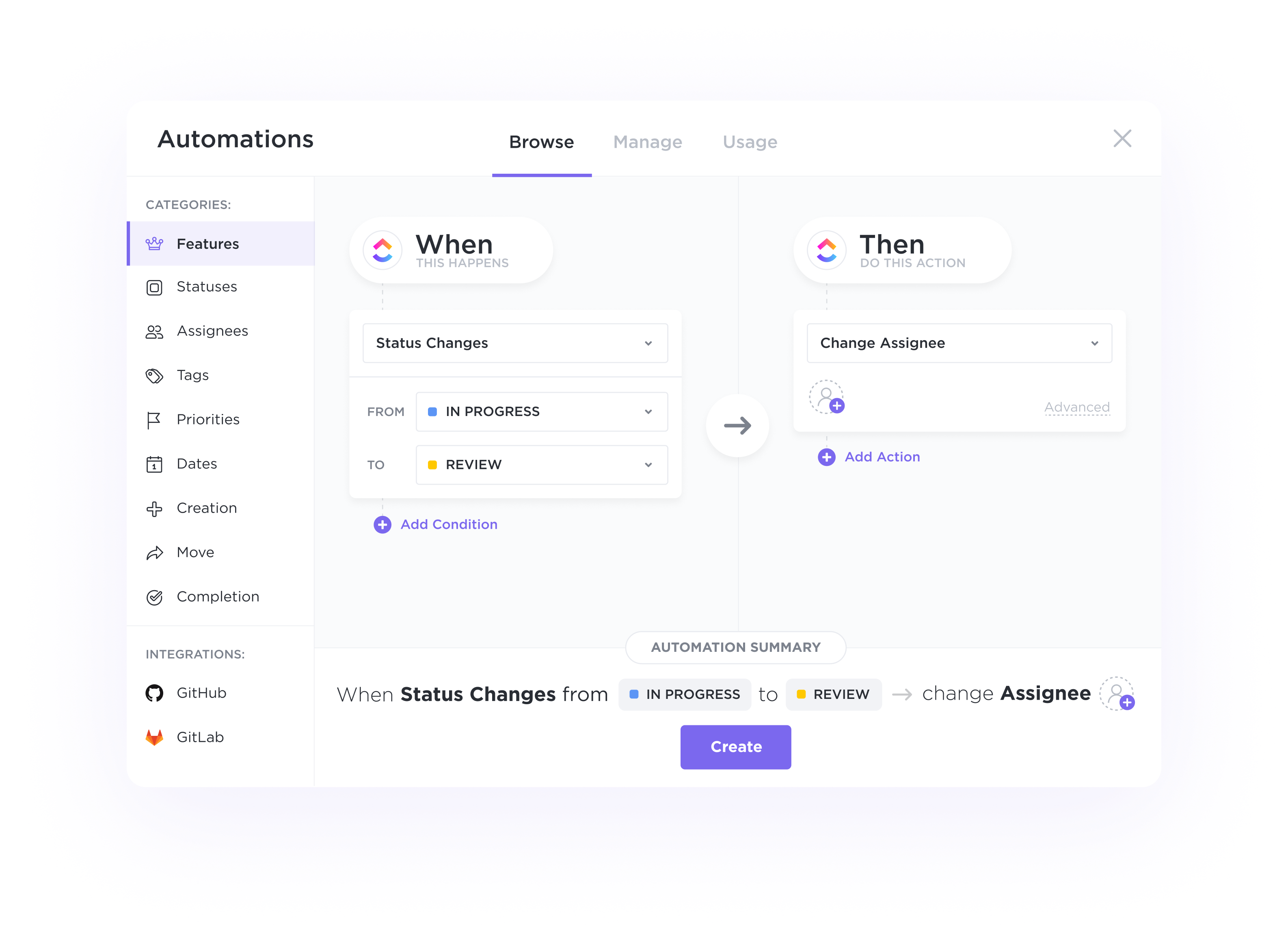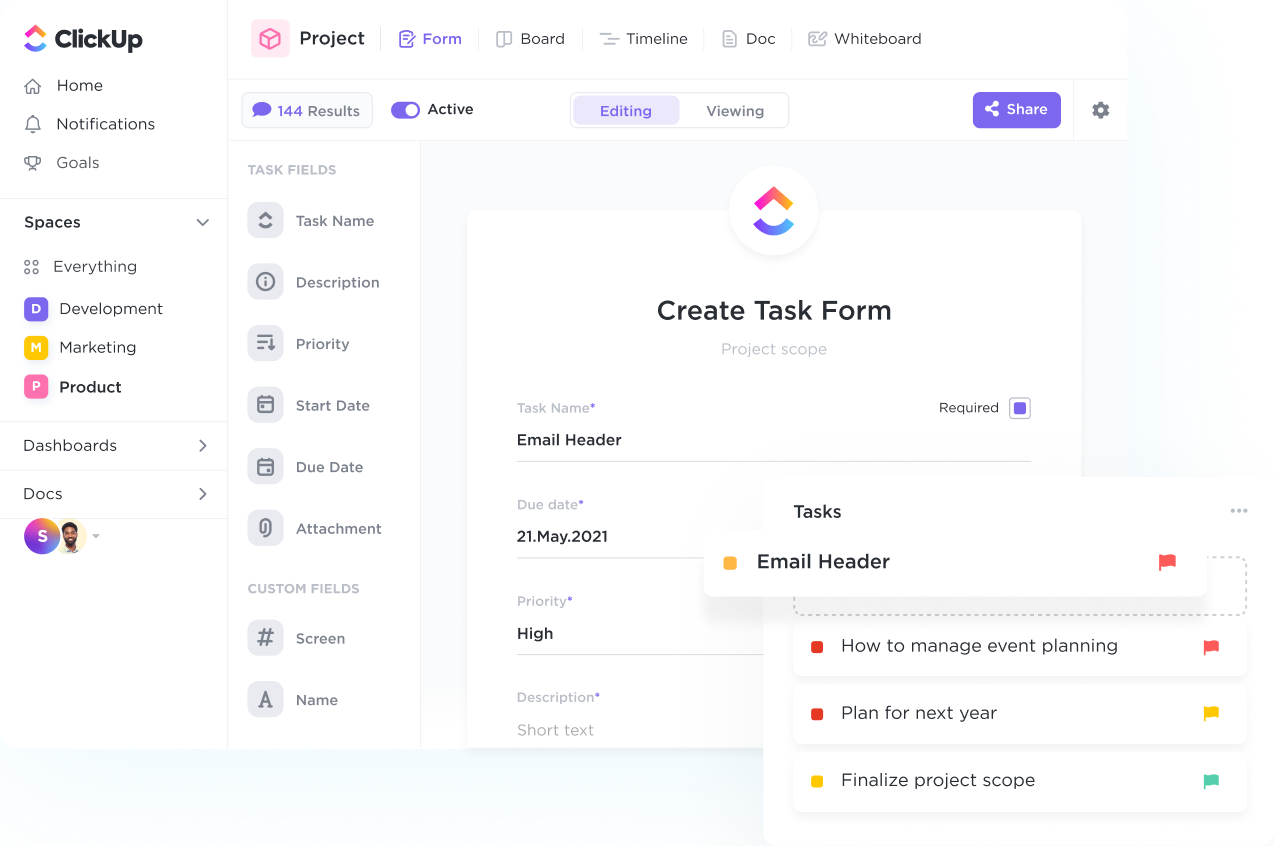Automate handoffs, status updates, and more.
Automatically assign tasks for each stage of your pipeline, trigger status updates based on activity, and switch priorities to alert your team on where to focus next.

Supercharge your customer relationships with ClickUp's customizable CRM system designed specifically for Public Servants. Streamline your workflow, track interactions effortlessly, and boost productivity with our user-friendly platform. Try ClickUp today and experience a whole new level of efficiency in managing your customer relationships.
Free forever.
No credit card.
Trusted by the world’s leading businesses
Automatically assign tasks for each stage of your pipeline, trigger status updates based on activity, and switch priorities to alert your team on where to focus next.

Streamline your intake process, organize response data, and automatically create tasks with custom branded Forms powered by conditional logic.

CRM software can help public servants improve efficiency and productivity by centralizing constituent information, streamlining communication, automating routine tasks, and providing data-driven insights for informed decision-making.
Key features and functionalities of CRM software for public servants include citizen relationship management, case management for handling inquiries and requests, government-specific compliance tools, and integration with public service databases for seamless information access and sharing.
Yes, CRM software can be customized to align with the specific needs and requirements of public service organizations, such as citizen relationship management, case management, and program tracking functionalities.